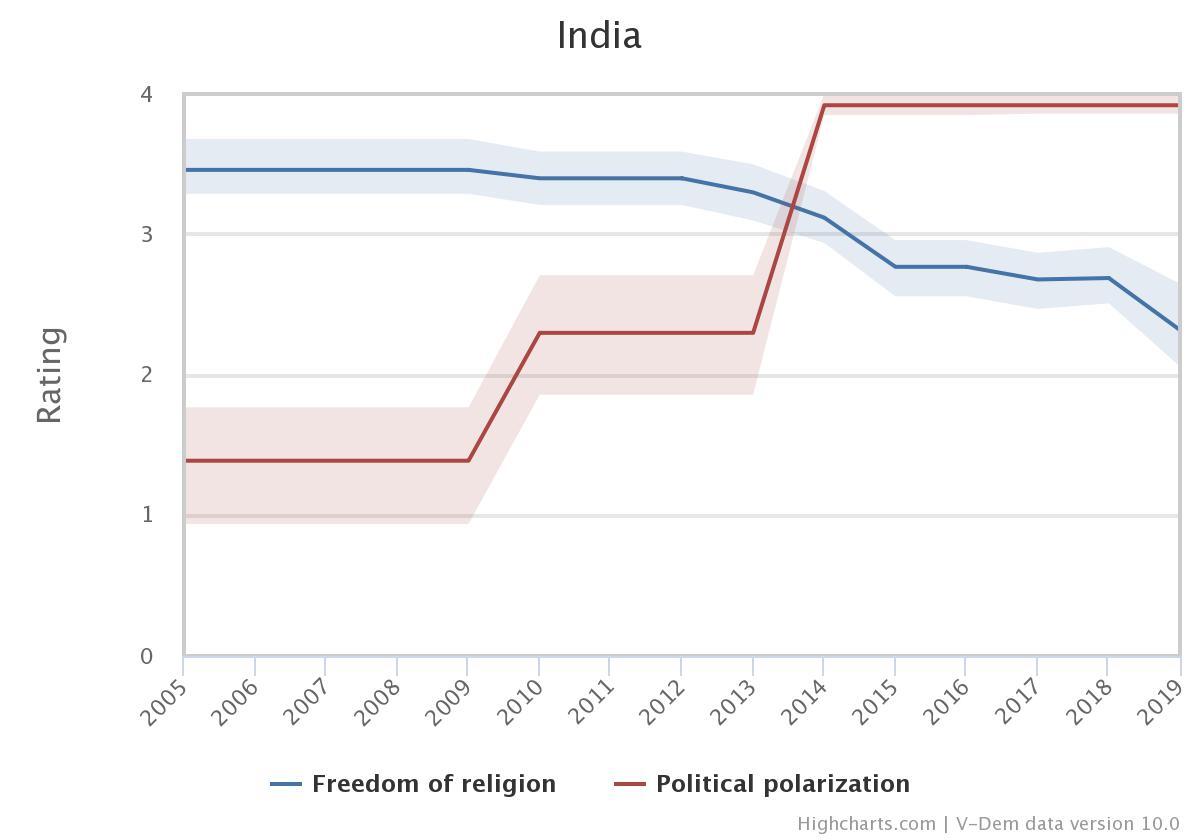India’s Polarized Society and the Role of Religion
By: Ana Laura Ferrari
Nov 25, 2020
India is the world's most populous democracy. It is also a religiously diverse country. Most of the world's Hindu population lives in India. The country also has large Muslim, Christian, Buddhist, Jain, and Sikh populations. Its constitution asserts freedom of religion and the country is a secular state.
Despite constitutional guarantees and protections for religious groups, religion-related social hostilities are common in many parts of the country. However, in the last few years, the situation has worsened. In particular, since the election of prime minister Narendra Modi in 2014, episodes of violence against religious minorities have increased. The Modi administration started to employ anti-muslim rhetoric and took measures that diminish the rights of non-Hindu religious groups.
The graph below shows the evolution of two V-Dem variables from 2005 to 2019. The freedom of religion index, in blue, measures the extent to which individuals and groups can choose, change and practice their religion, and can proselytize peacefully without being subject to restrictions by public authorities. Political polarization, in red, covers the extent to which political differences shape social relationships beyond political discussions. When a society is highly polarized, supporters of opposing political camps interact in a hostile manner in non-partisan environments.
Starting in 2014, when Modi became prime minister, the country's estimated freedom of religion fell considerably and society has reached high levels of polarization. Although declines in freedom of religion and the rise of polarization began before 2014, it seems clear that Modi and his Bharatiya Janata Party (BJP) reinforced these trends. When Modi came to power, Hindutva – a nationalist political ideology that defends that Hindus should exert hegemony over India – became mainstream.
These developments affect the daily lives of religious minorities. There have been several reports of the persecution of Christians and the destruction of churches in the last years. Lawmakers often ignore religiously inspired violence, according to nongovernmental organizations (NGOs) reports. The authorities also deemed millions of Muslims ineligible to vote in the 2019 general elections because of a lack of documentation. Although the voting registry changes do not explicitly disenfranchise religious minorities, Muslims experienced substantial voter exclusion in practice.
Mutual respect and freedom of religion have been important cornerstones of democracy in India. Therefore, increasing polarization and disrespect for religious minorities' rights are worrying signs. These latest trends are reflected in the most recent V-Dem Democracy Report, which places India as one of the countries on the verge of losing its status as a democracy.


